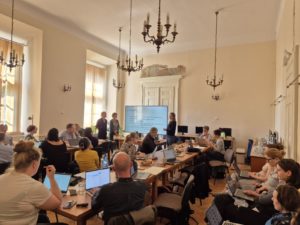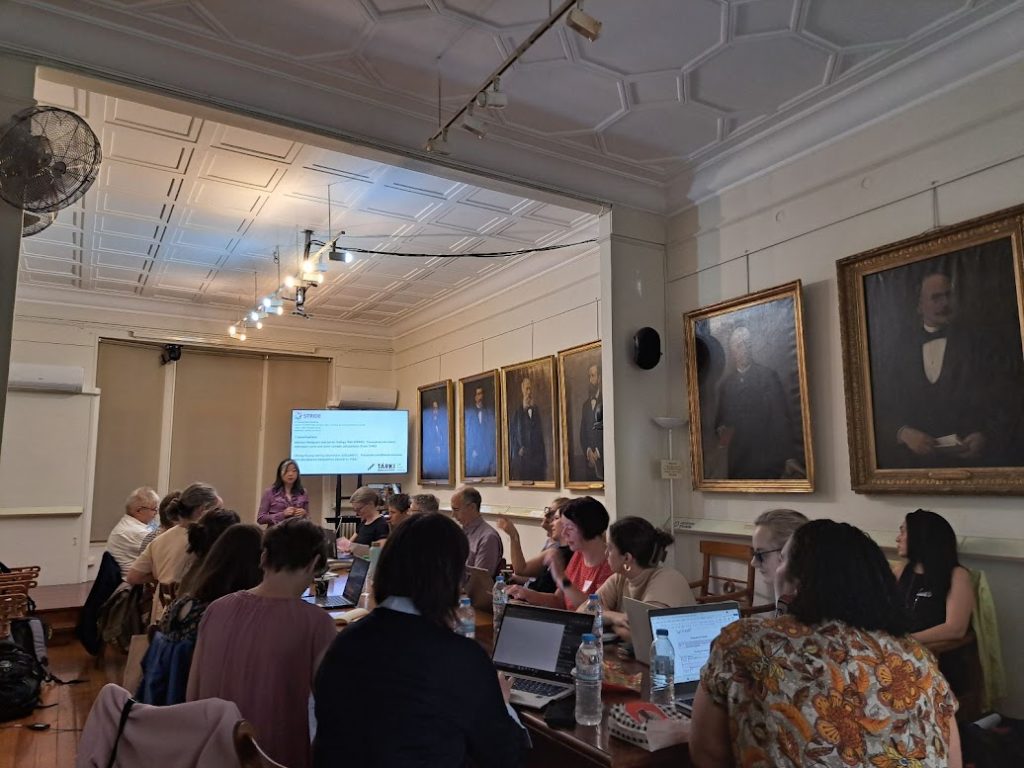Oslo Metropolitan University (OsloMet) is a large, urban university located in downtown Oslo. It is home to some of Norway’s oldest and best-known programmes of professional study, and many of our alumni work on the front lines of the welfare state. Every year, OsloMet graduates begin working as teachers, social workers, nurses, engineers, and other welfare state professionals, striving to improve the lives of people across the life cycle. Many of our students are the first in their family to pursue higher education, and many have backgrounds from other countries. At Oslo Metropolitan University we are proud of our inclusive tradition and our contribution to shaping modern-day Norway.
Our goal as an institution of higher education is to develop knowledge to solve societal challenges. Our impact does not end here. OsloMet researchers contribute to society in an equally important way—by producing knowledge and proposing solutions to challenges facing the Norwegian welfare state and societies around the world. Our role as an educational institution extends beyond national borders, driving the welfare state forward through innovation, cutting-edge research, and new approaches to long-standing problems.
Today, Oslo Metropolitan University is a modern university that spans many academic fields, from child welfare to journalism and cancer nursing. We are especially known for our robust and expansive academic communities in teacher education, health and social care, social sciences, design, and technology.
Our interest in the project
As the coordinator of STRIDE, led by the Norwegian Social Research (NOVA) Institute located at OsloMet together with the Faculty of Education and International Studies, we aim to build on and make use of several of our ongoing national longitudinal data on children and youth. Our advantage is that the OsloMet team includes several researchers whose work focuses on inequality issues in education, which is a central theme of call topic Mapping of longitudinal data and assessment of inequalities in education, training and learning achievements.
From NOVA, our project leader Lihong Huang, research focuses on influential factors and long-term consequences of learning results, learning environments, and the social and psychological well-being of children and youth in education systems. Her research interests also include issues of policy, economics, and social inequality in education and youth participation in Europe and international comparisons. Justyna Bell has been involved in several EU-funded projects, many of them aimed at those in vulnerable situations, such as migrant children and those from low socioeconomic families.
Marja Aartsen’s research concentrates on social exclusion, inequalities, and social functioning developments in the second half of life. She is interested in the statistical modelling of longitudinal associations between social functioning and other domains of functioning, such as cognitive and mental functioning and physical health.
Lars Roar Frøyland has extensive experience with the collection and analysis of quantitative data and has been involved in the work with large-scale surveys like YouthViolence 2023, Ungdata, Young in Norway, and the International Civic and Citizenship Education Study (ICCS).
Our research team from the Faculty of Education and International Studies includes Halla B. Holmarsdottir, who was the coordination of the EU-funded project DigiGen. Holmarsdottir’s research draws on interdisciplinary approaches, including ethnographic fieldwork with children and young people focusing on developing knowledge about how children and young people use and are affected by the technological transformations in their everyday lives as well as issues around marginalisation in education and the role of teacher education in contributing to providing competencies for democratic participation.
Idunn Seland specialises in policy for citizenship and integration through the school system in the Nordic welfare state. Her main research interests are education policy, school leadership and inclusion in national education systems. Furthermore, she is interested in mapping inequalities in education, training and learning outcomes over time and identifying reforms that compensate for those inequalities.
Siri Mohammad-Roe has extensive experience as a middle-school teacher and has worked in schools with highly diverse student groups. Her research aims to focus on how inclusivity can create learning environments that not only celebrate differences but also enhance educational excellence.
Isa Steinmann’s research focuses on determining how education systems and schools affect student achievement and educational inequality outcomes. In this field, she applies methods that aim for causal inference from large-scale assessment data.
The OsloMet project team is supported by a highly experienced project manager Dawn Heskestad.
Our Role in the project
In STRIDE, the OsloMet team is the project coordinator of the project. Building on our previous successful coordination of other Horizon 2020 and Horizon Europe projects, OsloMet will provide the technological and administrative infrastructure required to coordinate the project. The OsloMet team will support structures that build on our proven experience in developing sound pathways to impact through fruitful collaboration with stakeholders and efficient and diverse dissemination practices. The OsloMet team is also the co-leader for implementation and content activities in STRIDE. One of those consists in mapping the trends of inequalities in educational achievement in Europe through a reanalysis of existing data from large-scale international educational assessment studies following education reforms. This allows OsloMet to build on our ongoing national longitudinal data on children and youth, including the expertise of Lihong Huang, who has been the project leader in implementing the International Civic and Citizenship Education Study (ICCS 2016) in Norway. The OsloMet team will also work closely with the Lifelong Learning Platform to ensure effective impact and exploitation in collaboration with and dissemination to stakeholders throughout the project. As chair of the Ethics Sub-Committee, OsloMet will be responding to queries and monitoring ethical procedures, both upon accessing the existing longitudinal data, during field qualitative data collection, and subsequently to ensure the maintenance of confidentiality and safe storage of data.
OsloMet website: https://www.oslomet.no/en/
Find out about the other STRIDE project partners here.















